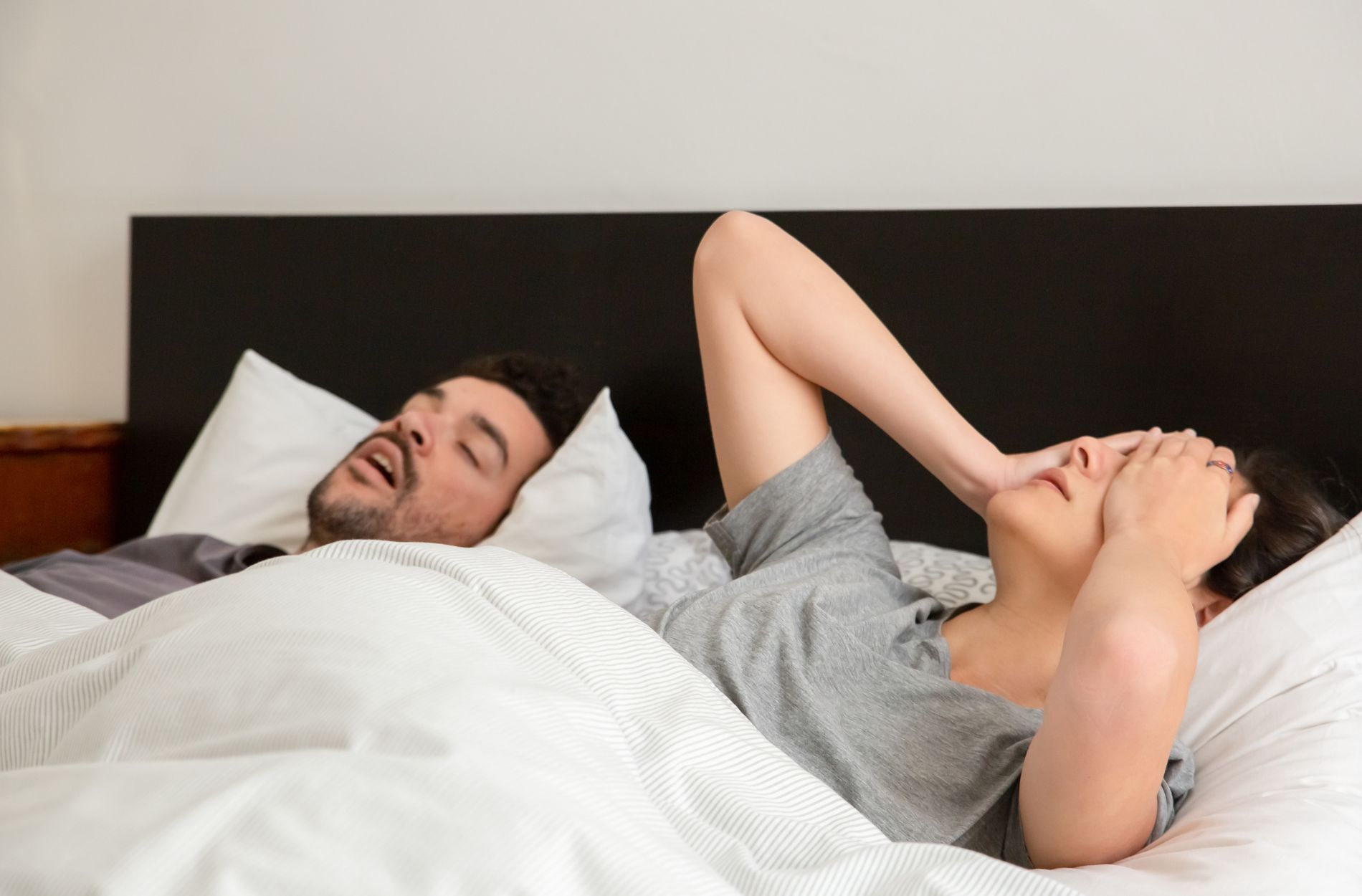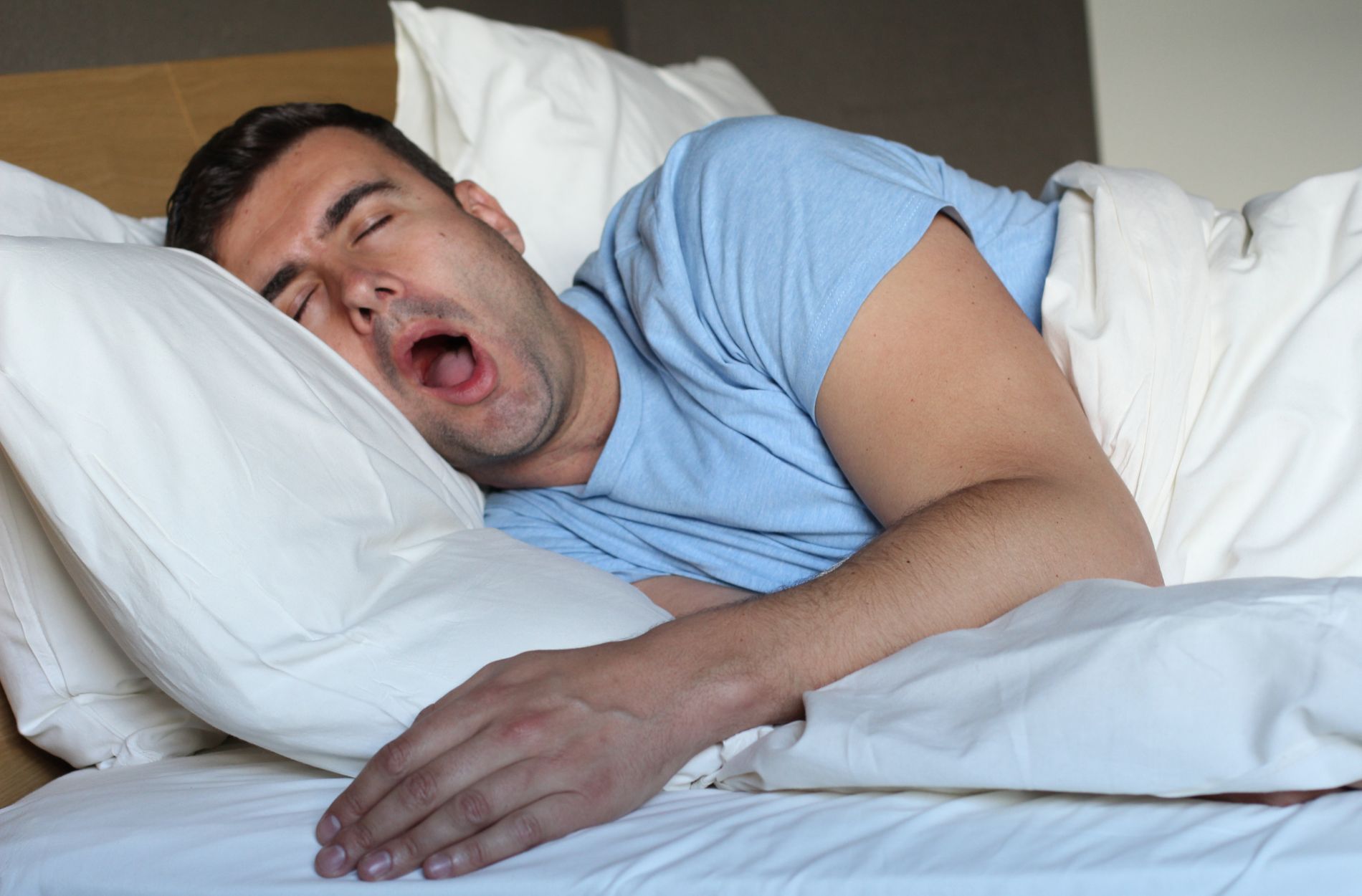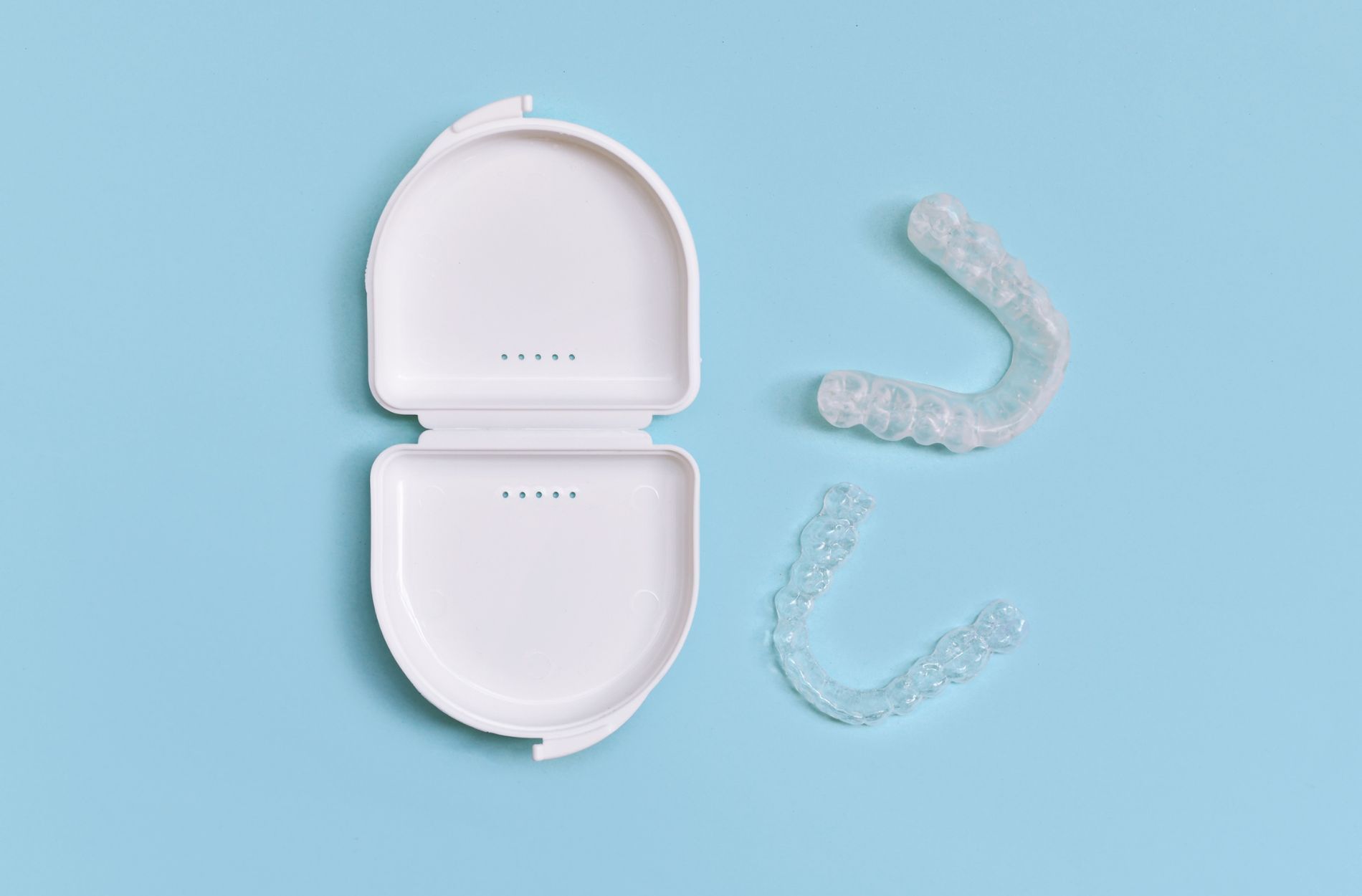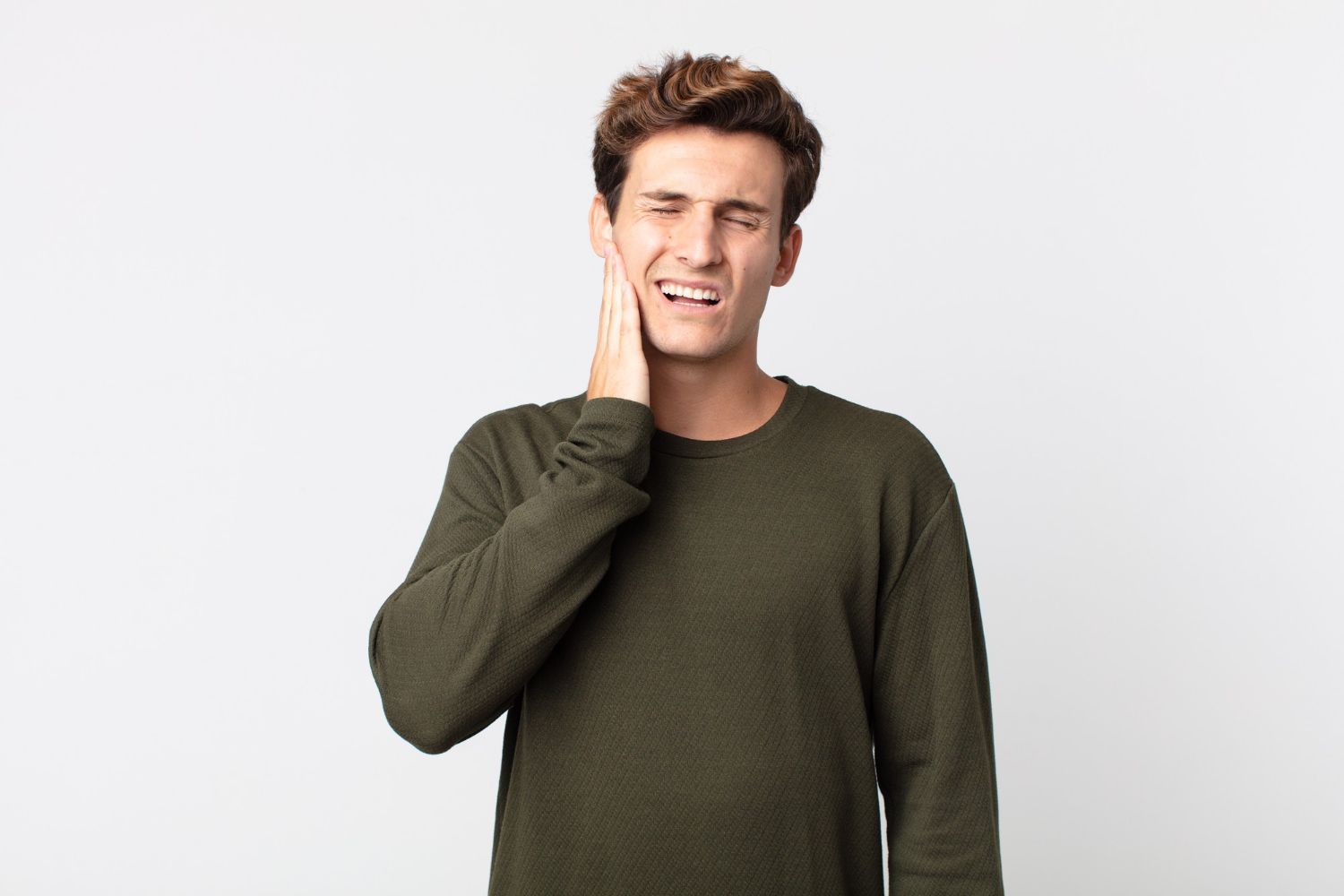How Your Oral Health Can Impact Sleep Apnea
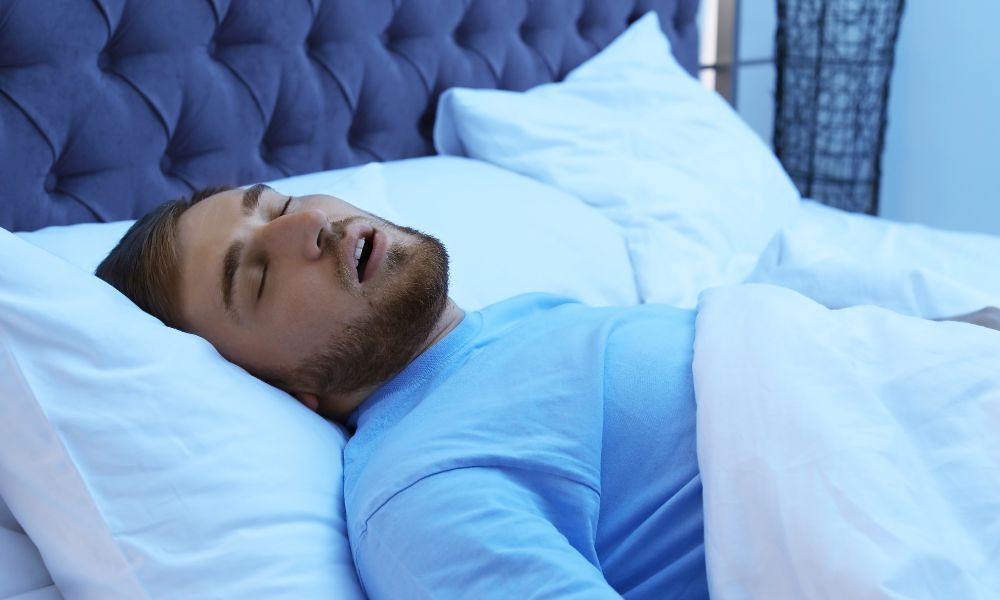
At The Center for Sleep Apnea and TMJ in Meridian, ID, we specialize in helping patients overcome a range of sleep-related issues and orofacial pain, including sleep apnea, snoring, and TMJ disorders. One area of concern that often goes unnoticed is the relationship between one's oral health and sleep disorders like sleep apnea. Maintaining good oral health can help reduce the risks associated with sleep apnea and improve the overall quality of your sleep.
Sleep apnea is a common sleep disorder characterized by repeated episodes of shallow breathing or pauses in breathing during sleep. This condition can lead to serious health complications if left untreated, such as daytime fatigue, high blood pressure, and heart problems. In this blog post, we will explore the connection between oral health and sleep apnea, providing our readers with valuable insights into how to better maintain their oral health and reduce the impact of sleep apnea.
Our team of experts at The Center for Sleep Apnea and TMJ will discuss how issues like gum disease, tooth decay, and oral inflammation can contribute to sleep apnea-related issues like snoring and exacerbate existing sleep apnea symptoms. We will also cover the steps you can take to improve your oral health to help alleviate sleep apnea problems and enjoy a better night's sleep.
If you suspect that your oral health may be impacting your sleep quality or sleep apnea symptoms, this blog post will provide you with the information you need and guide you towards seeking expert advice and treatment at The Center for Sleep Apnea and TMJ. Stay informed about the vital relationship between oral health and sleep apnea, and take control of your well-being today.
Combating Sleep Apnea Myths: Debunked for Better Sleep Health
Understanding the truth about sleep apnea is essential for those who suffer from the condition, their loved ones, and the general public. Debunking these common myths helps individuals recognize the importance of early detection and comprehensive treatment to manage the disorder effectively.
At The Center for Sleep Apnea and TMJ, we are committed to providing accurate information and exceptional care for our patients as they navigate their sleep apnea journey. If you suspect that you or a loved one may be suffering from sleep apnea, don't hesitate to reach out to our team of experts for a thorough evaluation and personalized treatment plan.
Recognizing the Wide Impact of Sleep Apnea
Contrary to popular belief, sleep apnea does not discriminate by age, gender, or body type. This disorder can affect people of all backgrounds, making it crucial to raise awareness about the condition and its varied symptoms.
- Sleep apnea in children: Though it's less common, children can also suffer from sleep apnea. Parents should be watchful for signs of restlessness during sleep, snoring, mouth breathing, and daytime sleepiness or behavioral issues.
- The role of genetics: Some individuals have a genetic predisposition to sleep apnea due to inherited traits, such as the size and shape of their airways. It's crucial for family members of those diagnosed with sleep apnea to pay close attention to their own sleep habits and seek evaluation if they suspect they might also have the disorder.
- Lifestyle factors: Another important aspect to consider is the role that lifestyle factors, such as smoking, alcohol consumption, and obesity, play in the development and severity of sleep apnea. Addressing these areas can be helpful in reducing sleep apnea symptoms and improving one's overall health.
Disentangling Snoring from Sleep Apnea
Loud, persistent snoring is often associated with sleep apnea, but it's important to note that not all snoring indicates the presence of this disorder. To determine whether snoring is a symptom of sleep apnea, look for these additional signs:
- Breathing interruptions: Sleep apnea is characterized by brief pauses in breathing during sleep, sometimes accompanied by gasping or choking noises. These events can occur dozens of times an hour, ultimately reducing sleep quality and causing daytime fatigue.
- Daytime consequences: Excessive daytime sleepiness, difficulty concentrating, irritability, and even depression can be symptoms of untreated sleep apnea. Addressing the cause of these issues can dramatically improve one's mental and emotional wellbeing.
- Physical symptoms: Waking up with a dry mouth, sore throat, or headache can also indicate sleep apnea. These symptoms arise due to the strain on the body caused by repeated breathing interruptions and subsequent oxygen deprivation during sleep.
Emphasizing the Seriousness of Sleep Apnea
The effects of sleep apnea go beyond mere inconvenience or annoyance. This disorder can have wide-ranging health consequences, some of which can be life-threatening if left untreated. Educating ourselves and others about these risks is vital for encouraging proper diagnosis and treatment:
- Cardiovascular risks: Sleep apnea has been linked to a higher risk of heart attack, stroke, high blood pressure, and irregular heart rhythms. Continuous oxygen deprivation puts a significant strain on the heart, making it vital to treat sleep apnea and protect cardiovascular health.
- Accident risks: Daytime fatigue caused by sleep apnea can increase the risk of accidents, both on the road and in the workplace. Ensuring proper treatment to reduce fatigue can save lives and prevent life-altering injuries.
- Quality of life impacts: Untreated sleep apnea can take a significant toll on an individual's quality of life, leading to decreased enjoyment of daily activities and strained relationships due to irritability, mood swings, and fatigue.
Exploring Alternative Treatment Options for Sleep Apnea
Although CPAP therapy is the most popular and widely recognized treatment for sleep apnea, several alternative options and techniques may be worth considering if you struggle with CPAP use or prefer a different approach:
- Oral appliances: Dental devices, such as mandibular advancement devices, can help open the airway by repositioning the lower jaw and tongue during sleep, providing relief from sleep apnea symptoms.
- Lifestyle changes and home remedies: Certain changes, such as weight loss, smoking cessation, and altering sleep positions, can help alleviate mild sleep apnea symptoms. In some cases, these modifications alone might be sufficient to improve sleep quality and reduce health risks.
- Surgical interventions: Surgical approaches, such as uvulopalatopharyngoplasty (UPPP), genioglossus advancement, and other upper airway surgeries, can be employed in more severe cases where other treatments have not been successful.
Conclusion
Debunking common sleep apnea myths is crucial for raising awareness and understanding of this prevalent but misunderstood disorder. By addressing these misconceptions, individuals can make informed decisions about their sleep health and seek appropriate care when needed.
At The Center for Sleep Apnea and TMJ, we are committed to providing accurate information and exceptional care for our patients. If you suspect that you or a loved one may have sleep apnea, reach out to our team of experts for a thorough evaluation and personalized sleep apnea treatment in Meridian, ID.
Disclaimer:
Our blog articles serve to educate readers about various treatment options for sleep apnea and TMJ disorders. It’s important to understand that while we discuss multiple treatments in our posts, not all of these options may be accessible at our clinic. We encourage you to reach out and schedule a consultation with us. This way, we can carefully devise a personalized treatment plan that caters to your specific needs.

